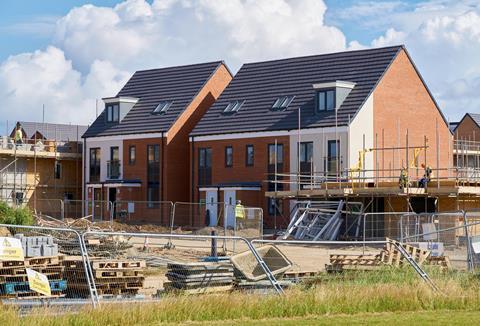UK’s second biggest lender says it fears borrowers falling into negative equity
The UK’s second biggest mortgage lender Nationwide has dramatically increased the deposit required by homebuyers to secure a loan, in a move one academic said could lead to an overall reduction in home ownership.

The building society said it was reducing its maximum “loan-to-value” ratio from 95% to 85% of the value of the house being bought, meaning new buyers will have to find 15% of the value of the house up front in order to get a loan.
It said it had taken the measure in the light of growing uncertainty over house prices, meaning it had to reduce the loan-to-value ratio to ensure borrowers didn’t fall into negative equity. It said in a statement the action had been taken “due to these unprecedented times and an uncertain mortgage market” in order that the firm could “continue lending responsibly.”
Those with existing mortgages at higher loan-to-value ratios will continue to be able to borrow, it said, at the same time as saying it was reducing lending rates further for those with the highest deposits.
The news comes after Housing Today last month reported a 90% drop in the provision of 95% loan-to-value mortgages since the onset of lockdown. Since then, some housebuilders have claimed that lenders were beginning to relax from this view, but the Nationwide’s announcement appears to contradict that position.
Henry Jordan, director of mortgages at the Nationwide, said the outlook for the mortgage market and house prices remained uncertain. He said: “As a responsible lender we must factor this uncertainty into our lending assessments, which is why we have taken the decision to reduce our maximum LTV for new business.
“We need to ensure our members can afford their repayments, while doing what we can to protect them from falling into negative equity.”
The decision comes amid forecast of house price falls in the wake of the pandemic, of anything up to 30%, despite some evidence of strong demand since the housing market reopened in May. Earlier this month, Nationwide itself reported a 2% fall in May in its monthly index.

Academic Iain Mulheirn, executive director of policy at the Tony Blair Institute, who has argued that lending practices rather than lack of supply are the main determinant of high houses prices and falling levels of home ownership, tweeted in response to the announcement that the mortgage market “is about to demonstrate its dominant role in determining home ownership rates once again”.
Neal Hudson, founder of consultant Resi Analyst, said, however, that housebuilders may be protected from the impact of the Nationwide’s decision by the government Help to Buy scheme, which effectively gifts recipients who can find a 5% deposit with a further 20% equity loan. He tweeted “I suspect H2B driven supply may do ok for the time being as the government is taking the risk”, which he said would result in new build housing making up a “bigger share of smaller total transactions.”
The decision will likely place even more focus on the future of the Help to Buy scheme, which housebuilders have been lobbying the government to extend. Currently, it is set to see significant restrictions on its use introduced from April next year, before being fully closed in April 2023.










No comments yet